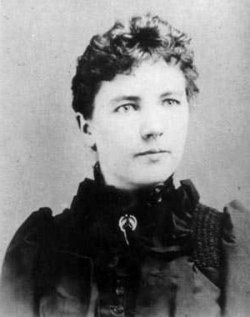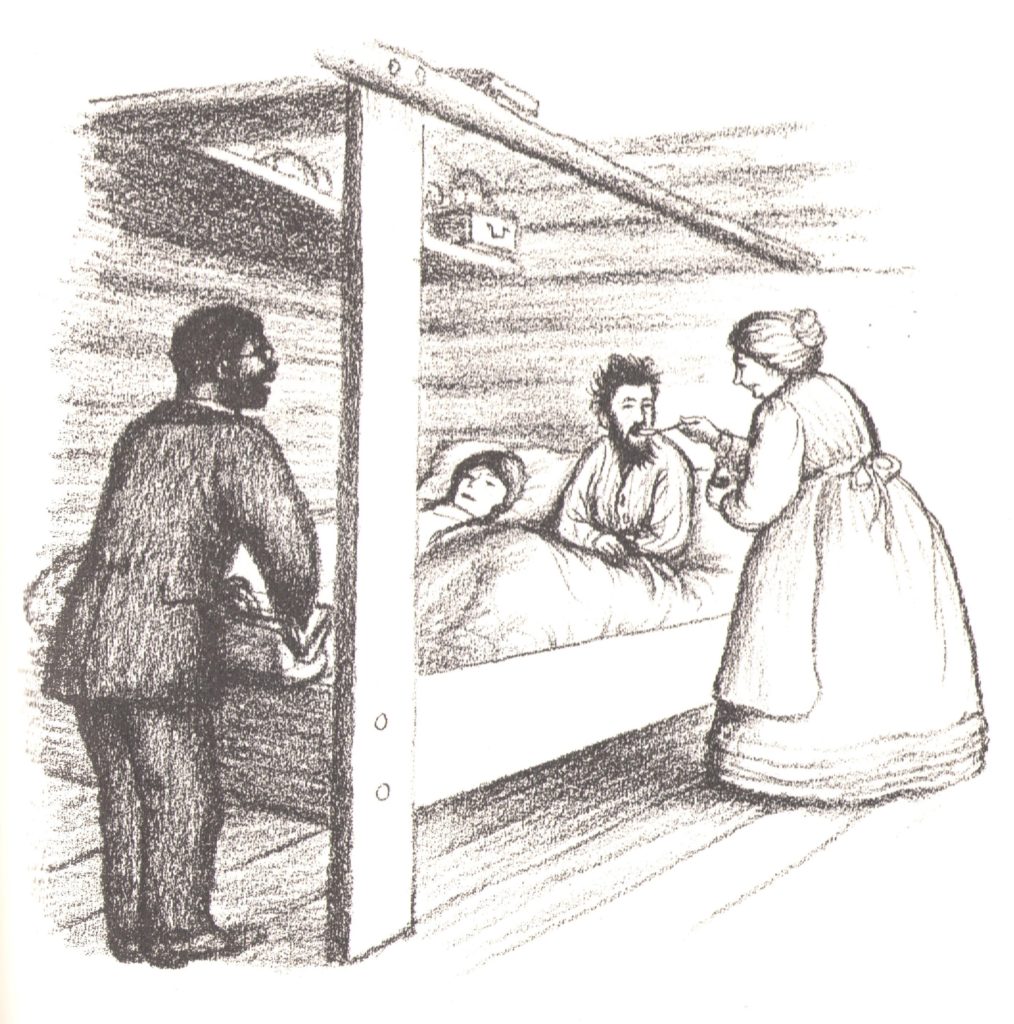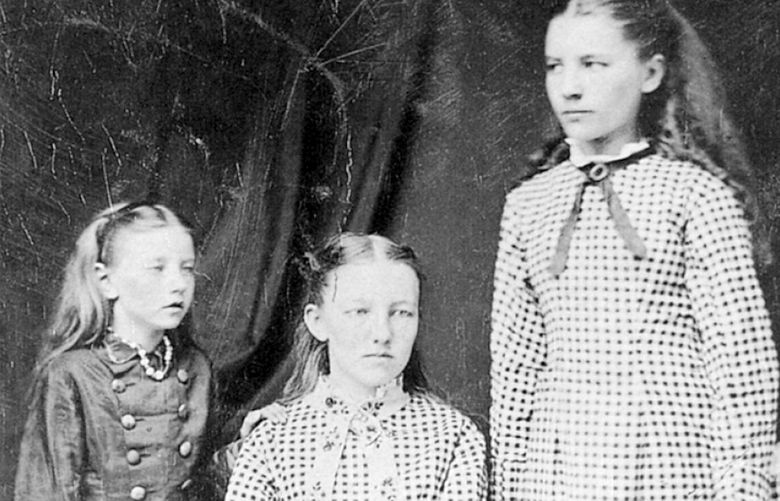"The real things haven't changed. It is still best
to be honest and truthful; to make the most of what we have;
to be happy with simple pleasures; and have courage
when things go wrong."
Laura Ingalls Wilder
Laura Ingalls Wilder
American author
(1867-1957)
I am sorry to have to end this month's blog on a sad note,
but I have just learned from the Laura Ingalls Wilder Society's
monthly newsletter that the American Library Association
recently voted to rename the Laura Ingalls Wilder Award
to the "Children's Literature Legacy Award."
According to the president of the children's department,
Nina Lindsay, the "Little House" series of books,
"reflect dated cultural attitudes towards indigenous people
and people of color that contradict modern acceptance,
celebration, and understanding of diverse communities."
In other words, Laura Ingalls Wilder, prolific author
and American pioneer girl, has become the latest victim
of the ongoing 21st century revisionist history movement.
As far as I am concerned, the action taken on the part
of the American Library Association makes them no better
than the ignorant fools who recently desecrated the
monuments of Confederate war heroes in the South,
in an effort to erase, "The lost cause of the Confederacy."
The American Library Association asserts that Laura's books
"do not align with their values." This is just more politically correct jargon,
along with phrases like, "culturally insensitive" and "diverse communities".
Laura Ingalls Wilder is considered by generations of Americans
who grew up reading and loving her "Little House" books
as one of our most beloved national treasures.
Through Laura's eyes, I was able to experience what it
was like to grow up in the Big Woods of Wisconsin, and to travel
in a covered wagon into the wilds of Indian Territory, and later
to Minnesota where the Ingalls first lived in a dugout on Plum Creek.
I felt the sorrow of the Ingalls family after Laura's older sister,
Mary, went blind, and later, the excitement of going West again
with the family to their final home in De Smet, South Dakota,
where Laura would one day meet and marry Almanzo Wilder.
One of the heroes in the book, "Little House On The Prairie" was an Osage
warrior named Soldat du Chene, who saved Laura and her family
and the other settlers in Indian Territory from being massacred
by other Indians who were angry to find the white settlers on
their land. Another admirable character was Dr. Tan, a black doctor,
who saved the family's lives after they were stricken with malaria.
An illustration from the chapter, "Fever "n" Ague" in the
book, "Little House On The Prairie". The Ingalls family all came
down with malaria after being bitten by mosquitoes carrying the disease.
Dr. Tan, a black physician who worked among the Indians,
was passing by the Ingalls cabin when Jack, the family's pet bull dog,
ran out to meet him on the trail and pleaded for him to come into the house.
Dr. Tan stayed with the family helping them to get better with doses
of quinine and was later joined by Mrs. Scott, a neighbor, who
came to help nurse them back to health.
book, "Little House On The Prairie". The Ingalls family all came
down with malaria after being bitten by mosquitoes carrying the disease.
Dr. Tan, a black physician who worked among the Indians,
was passing by the Ingalls cabin when Jack, the family's pet bull dog,
ran out to meet him on the trail and pleaded for him to come into the house.
Dr. Tan stayed with the family helping them to get better with doses
of quinine and was later joined by Mrs. Scott, a neighbor, who
came to help nurse them back to health.
In the book, "The Long Winter" which
tells how the residents of De Smet, South Dakota
survived several months of almost non-stop raging blizzards,
it was an old Sioux Indian who came to warn the townspeople about
the bad weather heading their way.
Furthermore, aside from the minstrel show in the
book, "Little Town On The Prairie" which reflects the
cultural norms of the time, I have never read anything
really offensive or degrading in Laura's books.
She did, however, relate the story of the cold-blooded murder
of a homesteader by claim jumpers in the book,
"By The Shores Of Silver Lake".
This was yet another reflection of the times she was
living in and how the government's offer of homestead land
on the remote prairies attracted both farmers and felons alike.
Laura autographs her books for her fans at
Brown Brothers Book Store in Springfield, Missouri
on November 17, 1952
Laura's stories are an important part of America's history mainly
because she was an eyewitness to life on the western frontier.
However, her "Little House" books were also written as a memoir of
her loving and close-knit family and are full of lessons about
faith and courage and having the determination to succeed in life.
Laura has always been an inspiration to me.
A true kindred spirit.
It breaks my heart that she has been so discredited in this way.
Laura (right) and her sisters Mary (center) and Carrie (left) in a photograph taken
after the Hard Winter of 1880-81.
"As you read my stories of long ago I hope you will remember that
things truly worthwhile and that will give you happiness are the same
now as they were then. It is not the things you have that make you happy.
It is love and kindness and helping each other and just plain being good."
-Laura Ingalls Wilder






No comments:
Post a Comment